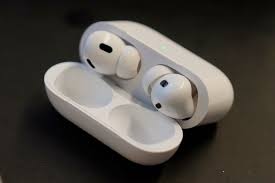Apple’s AirPods Pro 2 have gotten better since launch with software updates. In September 2024, Apple introduced a feature that allows the AirPods Pro 2 to work as a hearing aid. But before you consider skipping professional hearing aids, be aware of these precautions.
Battery life won’t last you all day
One of the biggest drawbacks of relying on AirPods for hearing aid is battery life. AirPods are designed for a few hours of listening and calls, but when you’re using them as a hearing aid, you’ll likely need them to last a lot longer — possibly all day.
Hearing aids are built to last a long time, with some going for 16-24 hours on a single charge. The AirPods Pro 2, on the other hand, may only last 5.5 to 6 hours on a single charge. You’ll need to carry the charging case for up to 30 hours of listening, but even then, recharging your earbuds in the afternoon is a major inconvenience.
You’ll need an iPhone or iPad
The AirPods Pro 2’s hearing features are limited to the Apple ecosystem. In order for AirPods to work as a hearing aid, they rely on the Hearing Aid feature, which is only available on devices running iOS 18/iPadOS 18 or later. This means you’ll need a compatible iPhone or iPad to set up or fine-tune these features, which isn’t ideal if you were hoping for a standalone solution.
Professional hearing aids, on the other hand, work independently. You don’t need an iPhone to get the help you need. If you don’t already have an iPhone or iPad, you may find the AirPods Pro frustratingly restrictive as a hearing aid option.
AirPods are noticeable, unlike discreet hearing aids
Although the AirPods Pro are sleek for a pair of wireless earbuds, they’re still bulky compared to most hearing aids. Modern hearing aids like Phonak and Oticon are barely visible, fitting inside or behind the ear. AirPods, on the other hand, are instantly recognizable.
Wearing them all day can also cause discomfort, especially if they start to slip or feel bulky in your ears. AirPods aren’t ideal for people who prefer a subtle, non-invasive solution to hearing loss. Their design makes it obvious that you’re either listening to something or trying to enhance your hearing.
Their sound personalization doesn’t match professional tuning
Although the AirPods Pro 2 offer some sound personalization features, they pale in comparison to the level of customization and accuracy offered by professional hearing aids. This explains why the FDA certified them as hearing aids — but only for people with mild to moderate hearing loss.
Like other over-the-counter hearing aids, the AirPods Pro can amplify sounds and make certain frequencies easier to hear, but their capabilities are limited. Professional hearing aids are tuned by audiologists specifically to match your exact hearing profile, adjusting to different environments and individual needs. If you’re dealing with anything beyond moderate hearing loss, the difference in quality will likely be noticeable.
While the AirPods Pro 2 may be a good option for people with mild to moderate hearing loss, they can’t completely replace traditional hearing aids. Their limited battery life, reliance on an iPhone or iPad, and lack of discretion and professional sound tuning make them a less viable option for people who need severe hearing assistance. For long-term daily use, OTC hearing aids remain the better choice.
